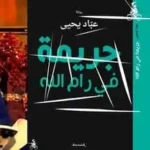This research is a contribution to the critique of the Arab preoccupation with the knowledge/ideology dualism, based on the recognition that this dualism is critical to the questioning of Arab knowledge production. At the same time, the Arab debate surrounding the duality suffers from lack of clarity in the use of concepts, and shifts among different levels—political, social, scientific, and philosophical– in its critique of knowledge production, This study is thus a contribution to avoiding the prevailing confusion by suggesting a method for applying the dualism in the critique of social knowledge production in a specific time and place.
In developing this theoretical contribution, the research builds on the efforts of Abdallah Laroui, who clarified the uses of the concept of ideology and the contexts for its employment; the contributions of Muhammad Waqidi, who attempted to clarify the link between epistemology and sociology in the context of his investigation of the relation of ideology to the humanities; and Ahmad Badawi’s methodological contributions in interrogating knowledge production in a specific context. This research engages with the works of these writers in an effort to link their contributions to the concept of the knowledge/ideology dualism, a concept that is located at the interstices of sociology and epistemology. The research attempts to develop a methodology for applying the dualism as a further elaboration of the science/ideology dualism.
In applying the theoretical contribution procedurally, this study examines social research production in the West Bank in the period between the founding of social ح science departments at Palestinian universities until the beginning of the 1990s, before the Oslo Agreements. The research suggests a paradigm for the analysis of research production in light of the duality, in an effort to distinguish between research that is deemed as constituting “knowledge” and that which is “ideological.”
The study concludes that the period under consideration was characterized by the hegemony of what may be called “the ideology of national commitment,” a political ideology that infiltrated into social science research production. At the same time, however, the journal Afaq Filistiniyya (Birzeit Research Review) presented an alternative vision concerning the interaction between research and the prevailing reality. The journal embodied a critical discourse that aspired to steer Palestinian research away from the hegemonic ideology and prevailing research paradigms.
The theoretical goals of this study are to elucidate procedures that can be applied to social research production in a particular time and place, and to highlight the centrality of the knowledge/ideology dualism in analyzing intellectual production.





